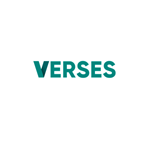VANCOUVER, British Columbia, Aug. 02, 2023 (GLOBE NEWSWIRE) -- VERSES AI Inc. (CBOE:VERS) (OTCQX:VRSSF) ("VERSES'' or the "Company”), a cognitive computing company specializing in the next generation of artificial intelligence, announces the filing of a provisional patent application representing a new method for Predictive Querying on vector graph document databases.
Probabilistic querying is an approach to database queries that seeks to provide a user with additional information “predicted” to be of interest to the user, given the context implicit in the query and around its prompter. VERSES’ novel Predictive Query method addresses limitations in prior arts by providing a system to perform probabilistic queries on the most advanced class of databases: vector graph document databases. Predictive Queries operate on vector graph document databases by implementing Hyperspatial Modeling Language (HSML) and an inference algorithm to generate a probabilistic and contextualized result.
The Predictive Querying method is the first querying method that allows probabilistic querying on vector graph document databases, that enables an engine to generate rich predictions about the information being searched for by the user based on comparative, relationship and similarity information.
“Through evaluating current data solutions like vector search databases and graph databases, we identified significant gaps in effectiveness, so we invented new methods of modeling, managing and querying data that are tailored more towards new modalities in artificial intelligence. This provisional patent is an important milestone that further signals our leadership position in the AI landscape and I couldn’t be more proud of the team and the tools we’re building.” said Jason Fox, CTO at VERSES.
Knowledge graphs represent entities – any physical or conceptual “thing” one can have information about in the real world (e.g., a robot, a sofa, a waypoint in space, a specification of an activity) – and the relationships between them. HSML is a modeling language for qualifying the relationships between entities in a knowledge graph.
An HSML vector graph document database is structured as an HSML knowledge graph and allows for information retrieval using complex queries that can simultaneously involve the comparison of entities (e.g., “find people older than Steve”), the identification of cause-effect relations (e.g., “who is Steve’s manager”?), as well as the evaluation of similarity between entities (e.g., “which employees have an educational background closest to Steve’s”?). Compared to vector graph document databases, other classes of databases are limited to either comparative, relationship or similarity search.
Now, because of this new method for Predictive Querying on vector graph document databases, VERSES returns the most probable and relevant match to a user’s rich implicit goal (e.g., inferring and returning the most probable brand, model, and location to a search for “cheap sunglasses” along with the best deals on cycling clothes matching the style of the sunglasses).
About VERSES
VERSES is a cognitive computing company specializing in next-generation Artificial Intelligence. Modeled after natural systems and the design principles of the human brain and the human experience, VERSES flagship offering, GIA™, is an Intelligent Agent for anyone powered by KOSM™, a network operating system enabling distributed intelligence. Built on open standards, KOSM transforms disparate data into knowledge models that foster trustworthy collaboration between humans, machines, and AI, across digital and physical domains. Imagine a smarter world that elevates human potential through innovations inspired by nature. Learn more at VERSES, LinkedIn and Twitter.
On Behalf of the Company
Eric Holder, Director of Communications, VERSES AI Inc., press@verses.ai
Investor Relations Inquiries
Leo Karabela, President, Focus Communications, info@fcir.ca 416-543-3120
Forward-Looking Statements Cautionary Note
The NEO has not reviewed or approved this press release for the adequacy or accuracy of its contents.






